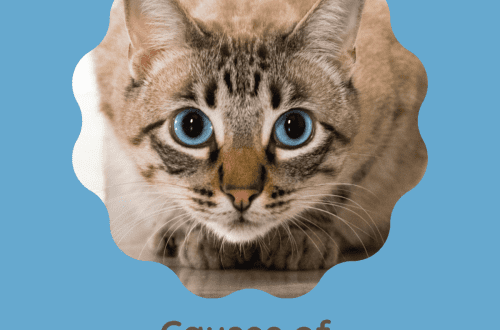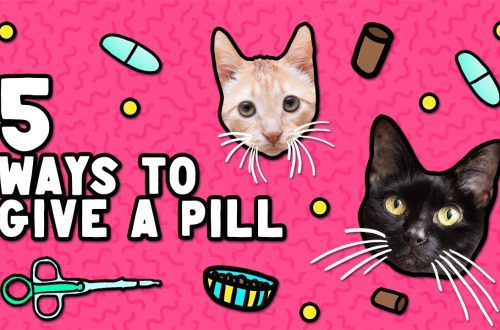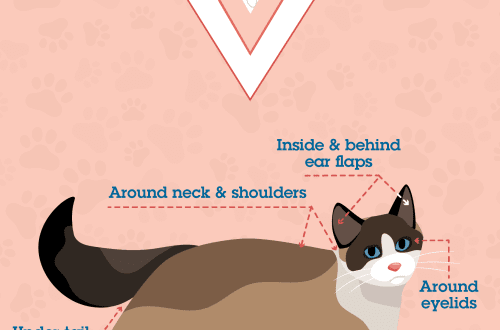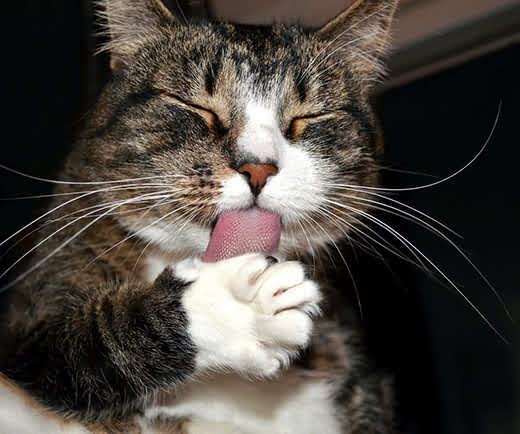
Why do cats constantly lick their paws?
For cats, this process is not only a matter of cleanliness. As staunch followers regular washingThey spend a lot of time grooming themselves, but paw licking is also linked to your pet’s physical and emotional well-being.
Why do cats lick their paws
Paw licking is one of the ways cats wash themselves: the distribution of saliva throughout the body helps them in the process of grooming. Preening takes a lot of time from a fluffy beauty. “Typically, cats spend 30 to 50 percent of their day bathing,” says Dr. Pamela Perry, veterinarian and animal behaviorist, resident of the Animal Behavior Clinic at College of Veterinary Medicine at Cornell University. Since saliva helps these animals to cool down when overheated, licking makes it easier for them to cool down at high temperatures.
According to the Cummings School of Veterinary Medicine at Tufts University, another reason a cat licks its paws is because the act of washing—and grooming in general—releases endorphins, feel-good hormones. This is a calming activity.
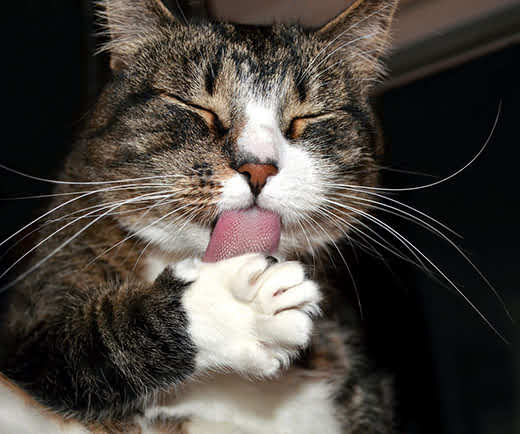
Why does a cat lick its paws excessively?
Increased pet attention to their limbs can be a signal of a serious health problem. Instead of trying to wean the cat from this habit, you need to take it to the veterinarian. It will be able to identify and fix the problem behind this behavior.
Cummings School of Veterinary Medicine explains that a number of physical and psychological problems can lead to overgrooming, including:
- allergy
- fleas
- dry skin
- neurological condition
- stress or anxiety
Among the causes of anxiety in animals include separation from the owner, changes in the familiar environment, such as moving to a new home. Perceived threats, such as the presence of another pet in the home, also play a role.
Diagnosis and treatment
If the cat’s behavior seems obsessive, you need to carefully observe it. It should be noted at what moments she licks her paws and how much time she spends doing this. You need to pay attention if the cat licks its paws to the bald spot, as well as any changes in its skin or coat. In addition, you should check if your pet shows signs of pain in the paw.
If any of these changes are noticeable, it is imperative to take the cat to the veterinarian and inform him of the results of his observations. On this basis, the specialist will be able to determine whether the pet licks its paws too often or obsessively.
He will examine the cat and will probably take several tests to determine the cause of this behavior. Treatment will depend on the diagnosis, but usually includes the use of skin products, oral or injectable anti-inflammatory drugs, feed change, medication for fleas and ticks, pheromone therapy and making changes in the environment, reports Vetwest. Experts note that antidepressants or tranquilizers may become an additional option.
Making changes to the environment or enriching the cat’s environment will give her the opportunity to have fun at home. You can buy a food puzzle, set up a cat tree or bookcase, and buy hunting toys.
The veterinarian may also refer the pet to a behavior specialist if they feel a change of scenery or environment might help the cat, notes International Cat Care.
As a rule, paw-licking by a cat is not a cause for concern. But if such actions become obsessive, you should consult a veterinarian as soon as possible. Together with him, you can choose the best course of treatment for your furry friend.



